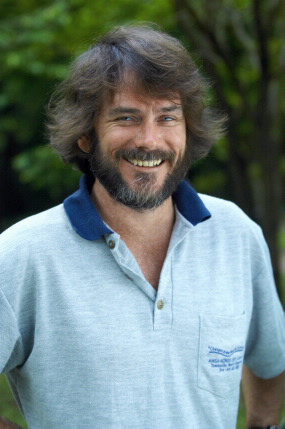Media Releases
Corals recover after tsunami reduces human pressures

The tragedy of the 2004 Indian Ocean tsunami has provided rare insight into the effects of human activity on coral reef ecosystems.
Professor Andrew Baird, from the ARC Centre of Excellence for Coral Reef Studies at James Cook University, will present Rapid recovery of degraded reefs following high human mortality from the Indian Ocean Tsunami at his Professorial Inaugural Lecture in Townsville early next month.
Professor Baird said reefs across the world were being adversely affected in different ways, but some influences were more difficult to measure than others.
“Coral reefs are in global decline largely as a result of climate change and ongoing destructive human activities, such as overfishing and poorly managed coastal development,” he said.
“However, the effects of human activity on coral reefs are often hard to assess because there are few reefs beyond the influence of humans and efforts to mitigate human impacts, such as reducing fishing pressure, are often thwarted by a lack of compliance.
“In this lecture, I will show that the recovery of degraded coral reefs in Aceh, Indonesia, was rapid and closely linked to reductions in human pressures following the Indian Ocean Tsunami of December 26, 2004.”
Professor Baird said within five years of the tsunami, coral cover increased three-fold; from less than 10 per cent to more than 30 per cent in two regions that experienced dramatic reductions in human populations.
“At some sites that were seriously degraded prior to the tsunami, coral cover increased 16-fold, from less than five per cent to over 50 per cent cover,” he said.
“In contrast, there was negligible change in coral cover within an adjacent region where tsunami-associated human mortality was low.
“These results demonstrate that if human activities can be curtailed, coral reefs, even those that have been degraded for decades, can recover rapidly to provide the goods and services upon which many humans communities depend.”
Presenter background:
Andrew Baird was born in Sydney and spent many years travelling in Asia prior to completing a PhD in Marine Ecology at James Cook University in 2001. In the course of his postdoctoral research into the environmental driver of synchronous spawning in corals, he undertook a number of trips to remote areas of Indonesia. His professorial lecture is based on over 15 years of change in coral reef community structure in Aceh, a period that included the Indian Ocean Tsunami in December 2004 and a mass bleaching event in 2010.
Details:
ARC Centre of Excellence for Coral Reef Studies
Professorial Inaugural Lecture by Professor Andrew Baird
Date: Tuesday, 3 June 2014
Time: 5.30pm
Location: The Raffles Room, Southbank Hotel and Convention Centre
Palmer Street, South Townsville
JCU Media Liaison: Caroline Kaurila, tel: (07) 4781 4586 or 0437 028 175
Issued May 19, 2014